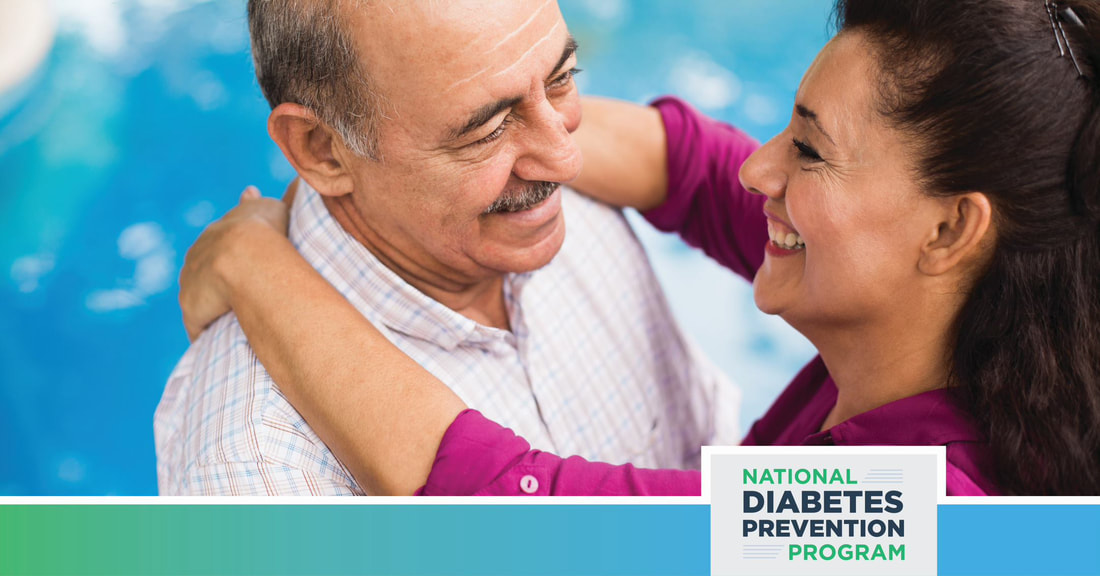|
As a grandmother, mother, wife, daughter, or sister, you are a role model for your loved ones, including the men in your family. Women tend to influence their fathers, husbands, brothers, and sons to make healthier decisions. Help the men in your life lead healthier lives by learning about prediabetes and ways to reduce risk for type 2 diabetes.
Prediabetes is a condition that affects 88 million American adults, and it means that a person’s blood sugar levels are higher than normal but not yet high enough for a type 2 diabetes diagnosis. Unfortunately, Hispanics/Latinos have a greater risk of developing prediabetes and type 2 diabetes compared to some other Americans. Gina recognizes she is at higher risk because her mom has high blood pressure and her dad has type 2 diabetes. She knows that she needs to take care of her health to prevent type 2 diabetes. Gina became a lifestyle change program coach two years ago because of her passion to motivate Hispanics/Latinos in her community to be healthier. “Thanks to everything I’ve learned in this program, I’ve created new habits to take better care of myself and I’ve also been able to help my family members. I have a brother who has type 2 diabetes and all the things I’ve learned as a coach have helped me give him tips, so he takes care of his health. We’ve talked about changes he can do every day, such as waking up earlier and walking for 30 minutes, incorporating vegetables into his meals, and being more conscious about his health,” said Gina. Like Gina, you can also help your loved ones take action today to prevent type 2 diabetes. Talk to your grandfather, dad, husband, brother or son today about prediabetes and encourage them to visit cdc.gov/diabetes/risktest to take the prediabetes risk test. In only one minute, your loved ones can find out if they are at risk for prediabetes. If one of your family members finds out he’s at high risk, you can help him make an appointment with his doctor to get a blood test and be sure. It's important for your family members to know that in many cases prediabetes can be reversed by making healthy lifestyle changes, such as eating healthier and doing physical activity regularly. But making these changes can be challenging and difficult for many people. You can also ask your doctor about activities you could do as a family to help him potentially reverse prediabetes and prevent type 2 diabetes. Your doctor can also offer tips and information about how to lead a healthier life and recommend a CDC-recognized lifestyle change program like the National Diabetes Prevention Program. As part of the program, a lifestyle coach helps participants learn how to lose weight, stay physically active, eat healthier, and manage stress. The program is personalized, and it helps participants work as a team with the instructor, as well as with other participants, building a positive and collaborative environment. Lifestyle change program coaches like Gina are committed to helping people in their communities lead healthier lives so they can enjoy special moments with their loved ones. Learn more about diabetes prevention and self-management on our Diabetes Resource Hub. For the Spanish version of this blog post, click here. Comments are closed.
|
The National Center for Farmworker HealthImproving health care access for one of America's most vulnerable populations Archives
March 2024
Categories
All
|


 RSS Feed
RSS Feed